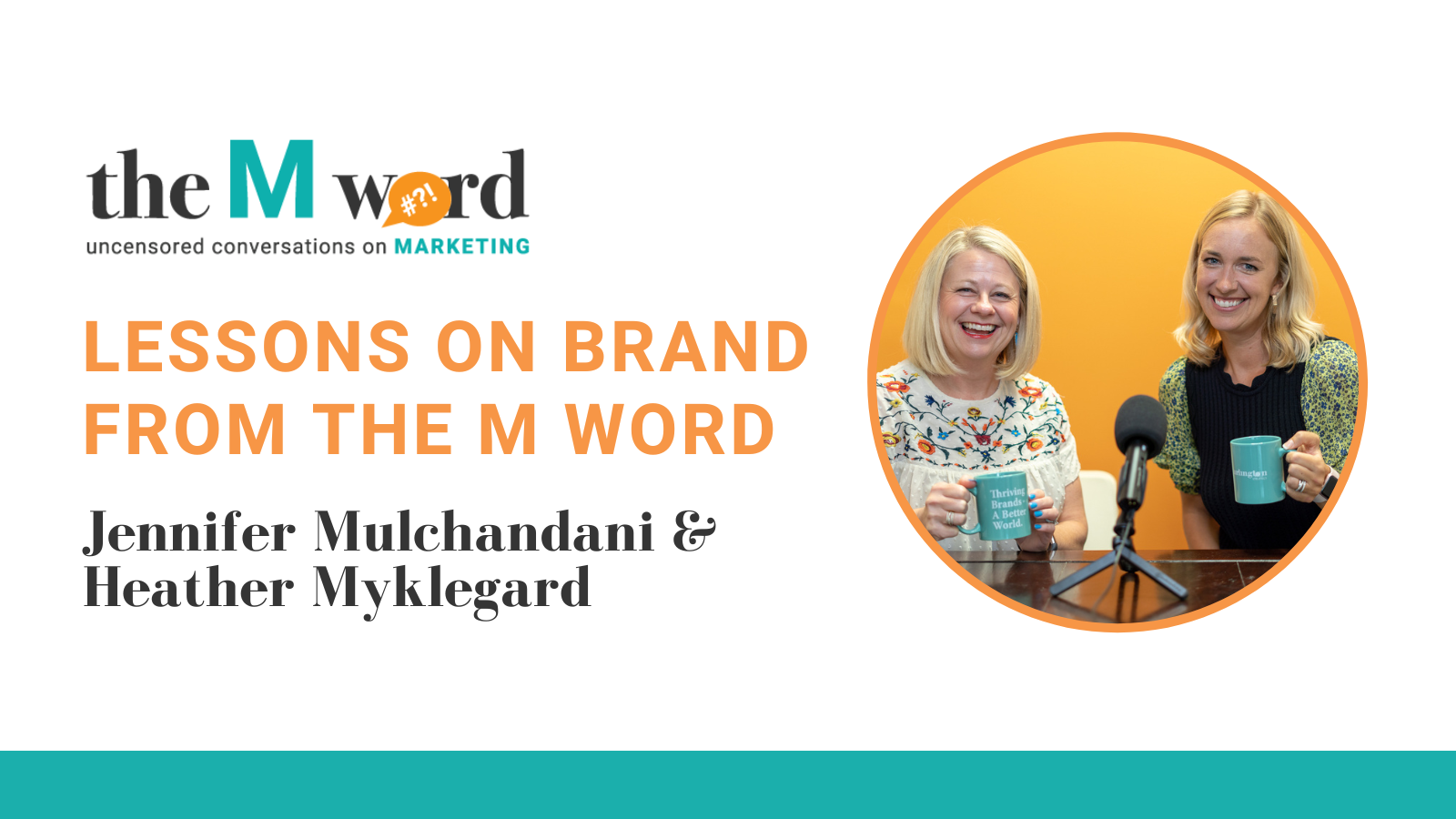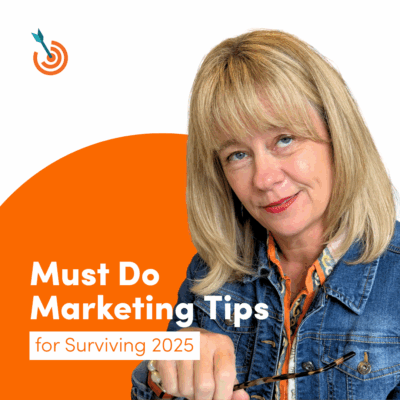 Season 2 of The M Word was focused on brand — what it means, why it matters, the highs and lows of managing it, and so on. We asked guests, “what does the word brand mean to you?” and did deeper dives into their own experiences creating, recreating, and building brands. Some of our conversations turned philosophical and others tactical – and just like a brand, every one of our episodes took unique bends and explored aspects of a brand that were important to our guests.
Season 2 of The M Word was focused on brand — what it means, why it matters, the highs and lows of managing it, and so on. We asked guests, “what does the word brand mean to you?” and did deeper dives into their own experiences creating, recreating, and building brands. Some of our conversations turned philosophical and others tactical – and just like a brand, every one of our episodes took unique bends and explored aspects of a brand that were important to our guests.
Jennifer and Heather’s interviews brought to light how everyone views brand differently. As we reflect on all of our conversations with our amazing guests this season, we have culled the lessons and themes that were discussed into four key areas.
1. Brand is Personal
Whether it was visuals, messaging, or values, each of our guests came in with a different definition and idea about what brand meant to them, their business, or their industry. It was more than a definition differential, but one’s personal understanding of why brand is important is critical, and it reminds us to meet our clients where they’re at – to uncover their approach to brand.
2. Brand is a Belief
It is not uncommon to think of brand as a set of assets for your company to stick on your website and communications materials, but it is so much more than that.
Our guests all came on knowing that their brand was also inherently linked to their values. It went beyond selling a product or service; it was a way to make a difference and connect with their audience.
This means that in order for us to uncover our client’s brand, we must first understand their beliefs and how they want them to show up in their brand.
3. Brand is Unique
Brand needs to set a business or organization apart from its competition. While it is helpful to scope out your competitors, copying another brand is not authentic and is a missed opportunity.
As marketers, we do brand research more to avoid accidental duplication than to help a business “fit in” with how other brands are showing up.
4. Brand Evolves
Brands are not static. Just as businesses grow their culture, products and services, and their markets, so does a brand evolve. This fundamental fact is what drives established brands to refresh or fully rebrand their identity from time to time.
How do you know when to rebrand? We have an entire season of The M Word to help you answer that question! It is a feeling more than an analytic calculation. Does your visual aesthetic feel good to you? Do your words reflect your current values or purpose? If you are unsure of the answers, ask your stakeholders. If there is a mismatch between how you want to be perceived and how you are perceived, then it is time to rebrand.
If you’re curious about these conversations, check out the Season 2 Wrap-Up episode, where Jennifer and Heather reflect on the discussions with each guest from this season. You can even take it a step further and listen to the episode(s) that pique your interest.
Subscribe to The M Word and never miss an uncensored conversation on marketing.


